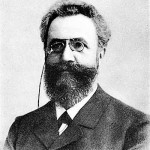What math teachers should know about memory
Posted by: Gary Ernest Davis on: April 11, 2011
 How often do mathematics teachers say about students: “If only they would memorize the information”?
How often do mathematics teachers say about students: “If only they would memorize the information”?
In my experience, a lot, and with considerable anguish.
What this concern shows, in my experience, is a lack of understanding of human memory systems – an aspect of brain functioning that is critical to education.
Rote memorization
This is about a useless a technique as was ever thought of for educational purposes, yet it is a plea made often by teachers: “Why won’t they just rote memorize it?”
The definitive study on rote memorization was done by Hermann Ebbinghaus and published in 1885. He studied the rate of learning and forgetting of nonsense syllables by himself, and formulated his law of forgetting in which an exponential decay describes the rate at which rote memorized information is lost.
One might argue that mathematical terminology, facts, procedures, and formulas are not nonsense syllables, having a great deal of logical structure. This argument misses the point that to many students the mathematics they are expected to remember appears to them to be more or less nonsense syllables, devoid of any real meaning. Mathematical experience is not, for these students, something that they can fit into a broader scheme of related memories. As a result their knowledge decays exponentially, and as experience shows, with a quite small half-life.
Students often recognize this problem themselves, as the following poignant example illustrates:
Should I drop my AP Calculus Class? (from Yahoo! Answers)
Motor memory
“They can do it, but they can’t explain it.”
 I can recall students who, after much practice, can carry out Gaussian elimination to solve a system of linear equations.
I can recall students who, after much practice, can carry out Gaussian elimination to solve a system of linear equations.Declarative memory
What to do?
Avoiding the low road in learning mathematics
Posted by: Gary Ernest Davis on: April 9, 2011
I wrote recently about cognitive theft in mathematics, an act that teachers – including parents – often carry out that short circuits a student’s possibility of working through a problem themselves.
x
There’s another side to cognitive theft – an act of omission – in which students themselves often engage.
Students often take away their own possibility of deeper, more rewarding, engagement with mathematics by asking: ” Show me how to do it.”
There are myriad reasons they might say this: not engaged, don’t care, don’t have time, are possibilities.
Yet anther, more deep seated, issue might be that students who think like this are simply taking what they see as a path of least effort: a low road to engaging with mathematics.
To a student not used to the joy of thinking through a mathematical problem, using sustained and concentrated thought can seem quite an effort.
How much easier to just ask the teacher:” Show me how to do it.”
Wallace Delois Wattles (1860–1911) (as eccentric as some people may view him and his writings) seems to me to sum up this tendency perfectly:
“There is no labor from which most people shrink as they do from that of sustained and consecutive thought; it is the hardest work in the world.” (The Science of Getting Rich, Wallace D. Wattles, p. 15)
Educators ought, in my view, to be “drawing out” their students.
“Education” is derived from the root “educare” to draw out.
Education, again in my view, has little to do with instruction (commonly conflated with teaching).
Rather, education in mathematics has more to do with a teacher promoting student knowledge and growth in mathematical reasoning and ability to calculate accurately (including by use of appropriate technology).
There are two major traps in this process.
One is cognitive theft on the part of a teacher – stealing from a student an opportunity to think a problem through themselves.
The second is a tendency of a student to take the low road of asking a teacher to engage in an act of cognitive theft.
Neither of these acts are ill-intentioned, in my view.
A teacher who steals an opportunity for a student to think is usually just trying to be helpful, as in: “Here, let me show you …”
I have done this many times as a teacher of mathematics. I never meant to be bad to a student, but I did steal from them an opportunity to engage more deeply.
A student who takes the low road of asking a teacher to show them how to solve a problem is usually just seeking to minimize discomfort, as in: “It’s easier for me if I can copy what you do.”
The longer-term problem with both these acts of cognitive theft – on of commission, the other of omission – is that a student is not “lead out” of themselves into a different realm – a realm in which the power of their thinking brain is evident to them.
I think Wallace Wattles was right about our aversion to sustained thought.
Yet it is our task as teachers to awaken students to the enormous power of their thoughts, of their ability to solve even very difficult problems by “sustained and consecutive thought.”
When I was engaged in elementary teacher education in Washington state a young woman said to me at the end of semester how much she  had learned from me.
had learned from me.
When I asked what, in particular, she replied that I had taught her to dig deeper.
I was surprised, and asked her how so.
She told me that one day when she was working on a mathematics problem and asked me what I thought of her efforts, I had replied: “You could dig a little deeper.”
I had no idea that such a simple phrase could have such a profound effect.
Years later I believe in this phrase as much as, if not more than, I did then: “Dig a little deeper.”
And have fun!
That, I think is how we teachers of mathematics can avoid falling into the trap of cognitive theft, and how we can help our students to avoid the low road of asking us to show them how its done.


